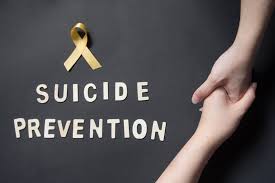
Bengaluru grapples with rising suicide rates
Bengaluru, often celebrated for its dynamic lifestyle and rapid growth, faces a pressing concern: high suicide rates. The National Crime Records Bureau (NCRB) consistently ranks Bengaluru among the top Indian cities for suicide rates. Factors contributing to this trend include the city's fast-paced lifestyle, intense competition, and escalating personal pressures. The 2021 UNICEF report reveals that about 20 per cent of young people aged 15 to 24 across 21 countries experience depression or a lack of interest in activities. This global trend is mirrored in India, where the National Mental Health Survey of India (2015–2016) found that 7.3 per cent of adolescents and 10.6 per cent of young adults suffer from diagnosable mental health issues.
Urban areas, like Bengaluru, exhibit double the prevalence of these issues compared to rural areas. Recent tragic incidents underscore the urgency of addressing mental health. On September 3, a 24-year-old man in Bengaluru died by suicide after inhaling helium gas in a hotel. Earlier, on August 5, a 44-year-old Central Crime Branch inspector was found dead near Bidadi, and on August 2, a 57-year-old man named Naveen Kumar Arora ended his life at Doddakallasandra Metro Station, halting train services on the Green Line.
World Suicide Prevention Day, observed annually on September 10, is particularly significant for Bengaluru. Amidst the city’s vibrant culture and economic progress, the rising rates of suicide highlight a critical need for better mental health support and resources.\ Supraja TJ, Founder of Mind Tattva and a Counseling Psychologist, emphasises, “Today’s youth in India are under immense pressure to succeed and fit in, influenced heavily by social media. These expectations can create an emotionally overwhelming environment, leading to hopelessness and despair. Shockingly, suicide has become one of the leading causes of death among the youth, underscoring the urgent need for action.” She added, “Anger, often associated with frustration and inadequacy, exacerbates mental health challenges.
The prefrontal cortex, responsible for decision-making and impulse control, typically matures by the mid-20s, making younger individuals more vulnerable to impulsive and regrettable decisions.” When combined with feelings of isolation and inadequacy, this vulnerability can result in tragic outcomes, including suicide or violence. Addressing these issues requires a proactive approach she added that parents, friends, family or people around the person must engage in open communication and recognise warning signs to intervene promptly. She urged that communities should prioritise mental health by providing counselling services and fostering supportive environments.
 English daily published in Bengaluru & Doha
English daily published in Bengaluru & Doha






